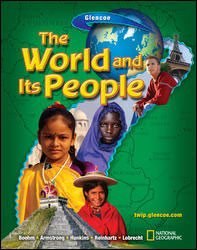
The World and Its PeopleChapter 10: Europe—Early HistoryChapter OverviewsWhen historians talk of Classical Europe, they mean the Europe of ancient Greece and Rome. Much of Western civilization grew out of the achievements of Classical Greece, which has been called the "cradle of democracy" because of its tradition of rule by the people. Athens, a democratic city-state in Greece, was home to the great philosophers Socrates, Plato, and Aristotle. Alexander the Great created a huge empire—and spread Greek culture—in the 300s B.C. Rome was settled sometime around 1000 B.C. and evolved into a major city-state that dominated much of the Italian peninsula. It started as a monarchy but changed to a republic. Later, a series of wars transformed the Roman Republic into the Roman Empire. Under Rome's first emperor, Caesar Augustus, Rome entered a period of peace and prosperity called the Pax Romana. Eventually Rome weakened and was invaded by neighboring Germanic peoples. With the decline of the Roman Empire, a new age called the Middle Ages began. During this time Christianity, in the form of the Roman Catholic Church, became a political power in western Europe. Early Church leaders, or popes, sent missionaries to every part of Europe to spread the faith. The Church also sponsored a series of holy wars called Crusades. The medieval political and social system-feudalism-was based on an exchange of land from the king to nobles who provided military service. The growth of cities and trade and the gradual breakup of feudalism led to the end of the Middle Ages. The emerging pre-modern period began with the Renaissance, a time of great achievement in art and learning that began in Italy in the 1300s and spread throughout Europe. Many of the new ideas that arose during the Renaissance led to questions about religion, and resulted in the Protestant Reformation. By the mid-1400s, Europeans had begun to embark on voyages of discovery and exploration to "new" parts of the world. The 1700s were an age of revolution. In the Americas, the colonies fought for independence from the European countries that ruled them. In Europe, the people fought for freedom from their kings, queens, and nobles. |  |















